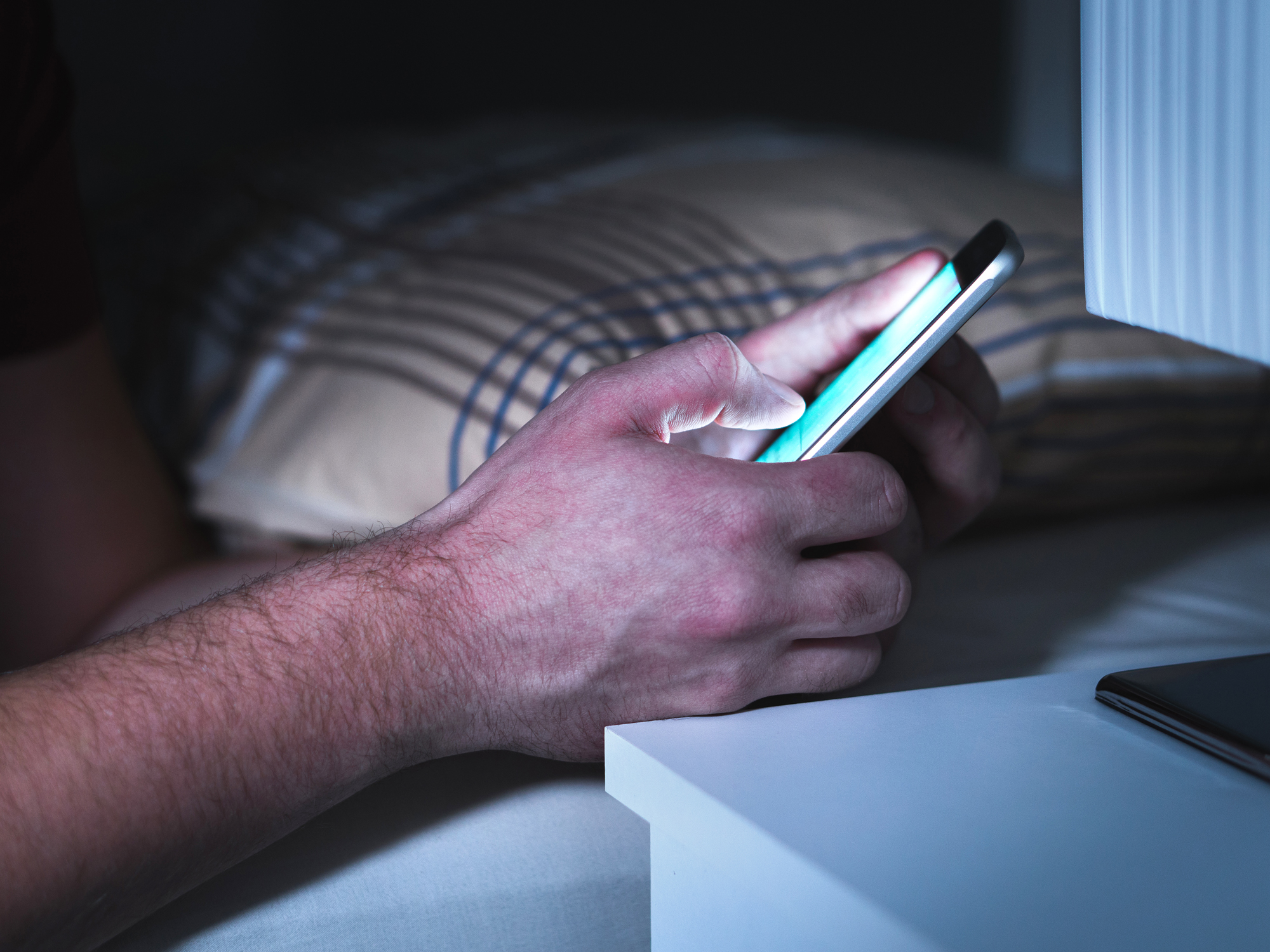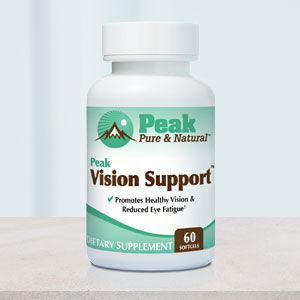Get Easy Health Digest™ in your inbox and don’t miss a thing when you subscribe today. Plus, get the free bonus report, Mother Nature’s Tips, Tricks and Remedies for Cholesterol, Blood Pressure & Blood Sugar as my way of saying welcome to the community!
Why your cell phone could give you diabetes, cancer and make you fat

Did you know that there are special cells in your eyes that have nothing to do with sight?
They have an entirely different role to play.
It all has to do with something you’re probably familiar with – your internal sleep-wake clock, better known as your circadian rhythm.
We already know that too much light in your bedroom can mess with this internal clock, interrupting sleep and causing depression.
But did you know that too much light at night can disrupt the work of those special eye cells and wreak havoc with your health? Especially a certain kind of light most of us are exposed to way too much of these days.
The “non-sight” eye cells that control everything
Retinal ganglion cells are a type of nerve cell located near the inner surface of the retina.
Of those ganglion cells, a small group are photoreceptors. Their job is to sense light and darkness and transfer the message to your brain’s central clock. That’s how your brain knows whether it’s time to sleep or time to be awake.
So naturally, artificial light in your bedroom can fool these cells. And why does this matter?
Because that central clock “sets” all the other clocks in your body. Over the past ten years or so, research has shown that our organs have their own “clock genes” that control the timing of the jobs they each perform.
For example, insulin-secreting cells in the pancreas have their own internal clock. So do your liver and most other organs.
This means that when your sleep-wake rhythm is disrupted by too much light, it not only can make you tired and depressed — it can affect all the organs of your body. And that means some serious health consequences.
Interrupted sleep is a health hazard
Jake Chen, associate professor at the University of Texas Health Science Center, studies circadian rhythms and their effects on our health.
“I cannot emphasize enough how important the circadian rhythm is for prevention of chronic diseases,” says Chen. “And for long-term benefits toward healthspan and eventually lifespan.”
While lifespan, the length of time you are alive, focuses simply on length of life, healthspan is concerned with the quality of that life: how long you get to live in a healthy, vital state, rather than living with debilitating illness.
Allowing too much light to disrupt your sleep and alter the master clock that controls your body’s every function can lead to health conditions and diseases including obesity, diabetes and cancer.
Turn those screens off at night!
Remember those photoreceptor cells in your eyes? They have a protein called melanopsin that responds to light and dark, essentially training your brain and establishing your body’s circadian rhythm.
And guess what kind of light these cells respond to best?
Blue light. The kind emitted from our cell phones, computers, and other electronic devices.
In fact, melanopsin responds to blue light as if it were bright daylight. That means it causes less melatonin (your “feeling sleepy” hormone) to be produced and tricks your body into thinking it’s time to be awake, ultimately throwing your circadian rhythm completely off.
If you’re someone who uses a computer or cell phone in bed almost nightly, you’re putting yourself at higher risk for diabetes and cancer. For your health’s sake, you should stop using any electronic device with screens at least an hour before bedtime.
Editor’s note: Are you feeling unusually tired? You may think this is normal aging, but the problem could be your master hormone. When it’s not working, your risk of age-related diseases skyrockets. To reset what many call “the trigger for all disease” and live better, longer, click here to discover The Insulin Factor: How to Repair Your Body’s Master Controller and Conquer Chronic Disease!
Sources:
- This is how the light from your phone breaks your internal clock — Massive Science
- Just 6 hours of sleep loss increases diabetes risk — Medical News Today
- ‘Biological clock’ linked to morning heart attacks — news.com.au
- How Sleep Affects Cancer — WebMD
- Is there an association between shift work and having a metabolic syndrome? Results from a population based study of 27 485 people — Occupational and Environmental Medicine
- Metabolism and Circadian Rhythms—Implications for Obesity — Endocrine Reviews













